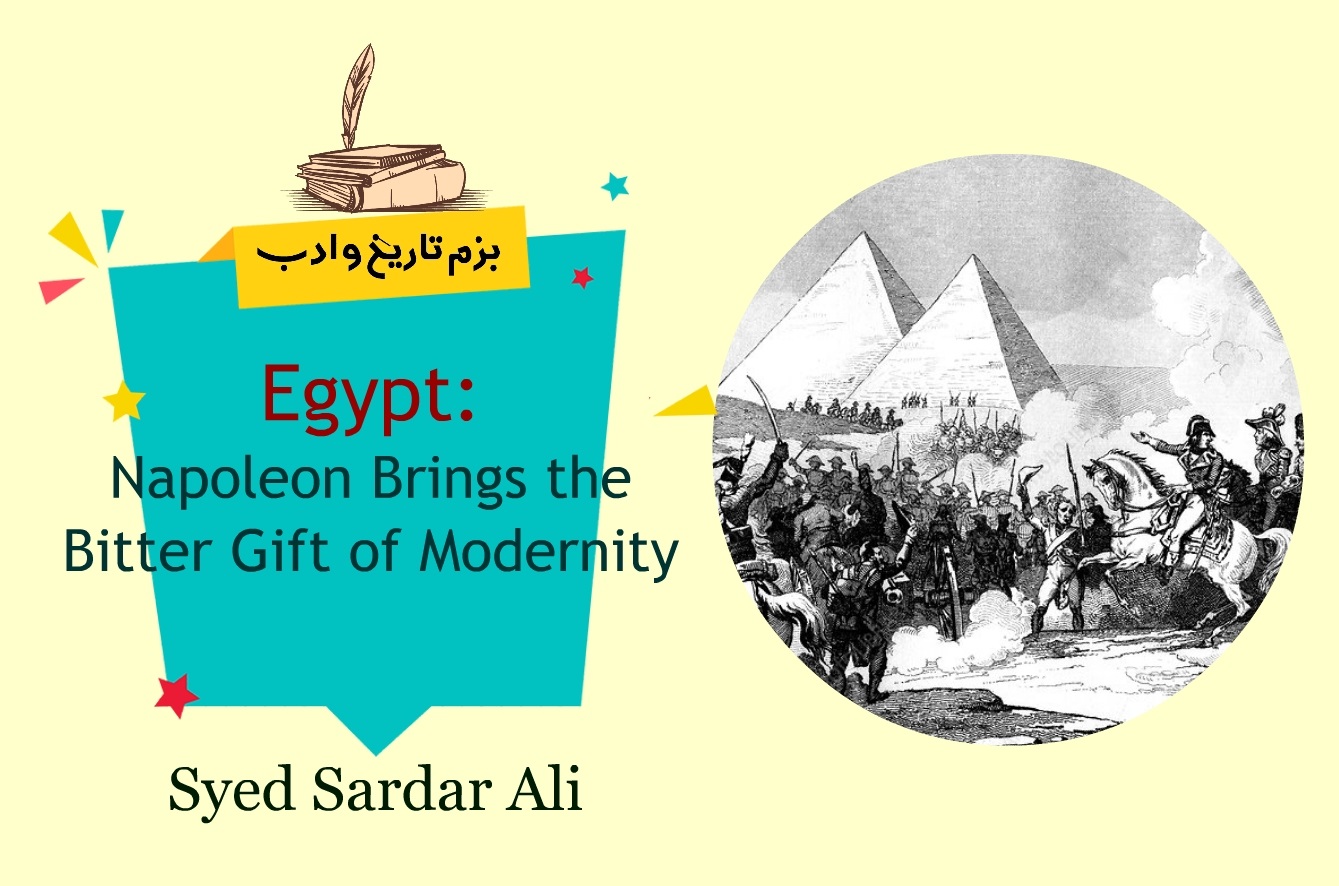
Egypt: Napoleon Brings the Bitter Gift of Modernity
Napoleon’s invasion in 1798 exposed Muslim Egypt to the power and ideas of modern West. In his wake, Egypt became the first Islamic polity to attempt modernization. Egypt made economic progress under British occupation but democracy during the inter-war period proved inept and corrupt. Era of Nasser brought some progress but did not resolve the ideological tensions between modernity and religious order of society. During the Arab Spring, army once again emerged as the arbiter of society’s split between Islamism and secular nationalism. Two centuries after the modernization drive of Muhammad Ali Pasha, Egypt remains poor, fragmented, and undemocratic.
About the speaker
Academic Qualifications
Master in Public Administration – Harvard (1996-98)
Master in International Relations – Japan (1989-91)
BS Mech. Engineering – UT Austin (1983-86)
Work Experience
Financial and Private Sector – World Bank, Washington, DC
International Dept. – Industrial Bank of Japan, Tokyo
Middle East Business Dept. – Sony Corp., Tokyo
Engineering Dept. – ICI Pakistan, Ltd.
Syed Sardar Ali did his F.Sc. from Govt. College Lahore and Bachelor of Science in Mechanical Engineering from the University of Texas at Austin. He earned his first master’s degree in International Relations from Japan and worked for Sony Corporation and the Industrial Bank of Japan in Tokyo. He later earned Master in Public Administration (MPA) from Harvard where he was a student of Prof. Samuel Huntington. Upon graduation he joined the World Bank in Washington, DC and worked in the Financial and Private Sector Unit in the Europe and Central Asia region until 2002. Sardar Ali, who runs a number of businesses in Islamabad and Lahore, is the Chairperson of Crescent Foundation. He has one daughter and three sons.
